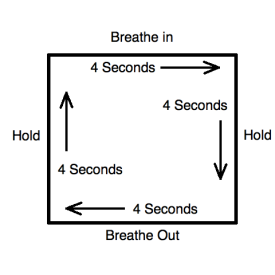By Jason Wu, Ph.D.
Stress is a basic part of life. However, it can become debilitating when out of control, which means that it is important for us to develop stress reduction and relaxation skills in order to prevent it from getting to that point.
And truthfully, for some, we were never really taught how to relax. I myself have trouble relaxing – it took me years to learn how to actually enjoy a massage! Prior to that, I would always tense my muscles so much that a massage would hurt. In time, I learned to soften my resistance, breathe, and allow myself to experience relaxation (but it wasn’t easy).
Here are some basic ways to help reduce stress and increase relaxation:
- Progressive muscle relaxation – Sometimes it’s helpful to learn what relaxation feels like in the body by tensing it first – here’s a guided video that walks you through a very effective and widely used technique:
- “Worry Time” – Ever notice yourself worrying about something at work while you’re having dinner with friends? This can be a sign of stress and anxiety, and a strategy that has been shown to ease anxiety is to actually schedule a time for yourself to worry. It can be as long as you want, depending on what the situation calls for (maybe you only have time to worry for 5 minutes before your next meeting). That way, you can allow yourself to worry about the things that need worrying about, but in a controlled setting. You can also write all these worries down and then put it away when you’re done – in a way symbolically learning how to allow it to happen when it does but also practicing how to put it away when needed.
- Break It Down – Sometimes a large, looming project or activity can be overwhelming when we look at the entire thing as a whole, so it can be very useful to break down the project into small, doable pieces that we can focus on, one at a time.
- Box Breathing – Changing the way we breathe can be an effective way of activating the parasympathetic nervous system (the part of our nervous system that controls “rest and digest” functions), which allows us to access our calm and peaceful side. Below is an image illustrating the practice of “box breathing” – you breathe in (deep, controlled, and steady) for four seconds (you can adjust this based on your own lung capacity, just do a number that feels right); hold the breath for four seconds; breathe out (deep, controlled, and steady) for four seconds; hold again for four seconds; and repeat. Pay attention to your level of stress – you might notice it changing, which is a sign that you’re practicing stress reduction!

- Basic Checklist – these are just some basic overall hygiene tips that might help you manage your stress levels
- Avoid stimulants (caffeine, nicotine) if they cause you to become jittery, anxious, tense, etc.
- Sleep well
- Eat healthier food – food is fuel and better fuel results in you feeling better
- Exercise – find something you enjoy doing for exercise and use it to burn off excess anxious energy!
- Practice time management skills
- Journal
- Talk to people about how you are feeling – particularly those you find to be supportive, validating, and understanding
- Understand and accept your limits – we are not machines, and we have limits; there is NOTHING wrong with you for saying no and setting a self-care boundary
- Following up with the last point – find a workable work-life balance!
